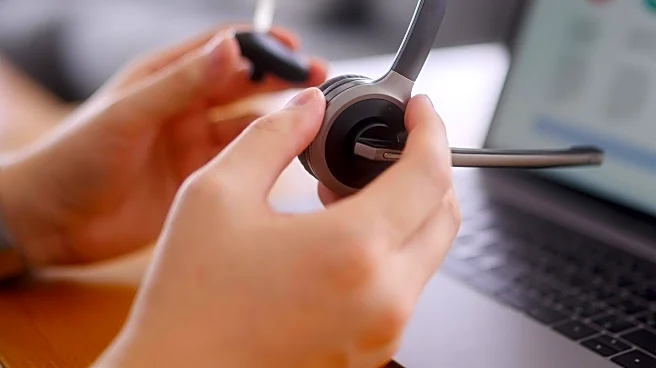What's Happening?
Sovato Health Inc. has closed its Series B funding round, raising a total of $41 million to advance its telesurgery platform. The company aims to democratize access to high-quality medical care by enabling
remote and robotic surgery. Sovato's system-agnostic platform allows physicians to use any surgical, interventional, or diagnostic robotic system remotely. The funding will accelerate platform development and strategic partnerships with surgical robotics companies and healthcare providers, positioning Sovato as a leader in remote surgery.
Why It's Important?
The advancement of remote surgery technology has the potential to transform healthcare delivery by providing access to skilled surgical care in underserved areas. Sovato's platform could address surgeon shortages and reduce the need for patients to travel for routine procedures, improving healthcare accessibility and efficiency. The investment in telesurgery reflects growing interest in innovative solutions that enhance medical care and address global health challenges. As remote surgery becomes more feasible, it may lead to significant changes in healthcare economics and patient outcomes.
What's Next?
Sovato plans to use the funding to further develop its platform and expand collaborations with healthcare leaders and robotics organizations. The company aims to establish guidelines for remote robotic surgery and procedures, ensuring safe and effective adoption worldwide. As Sovato continues to innovate, it may influence the development of new standards in surgical robotics and remote healthcare delivery. The success of its platform could encourage other companies to explore similar technologies, potentially leading to broader adoption of remote surgery solutions.
Beyond the Headlines
The rise of remote surgery technology raises ethical considerations regarding patient privacy and the role of technology in healthcare. As telesurgery becomes more prevalent, discussions around its impact on traditional surgical practices and the potential for disparities in access may arise. The focus on remote healthcare solutions highlights the need for equitable access to medical care and the importance of addressing health disparities in underserved regions.










